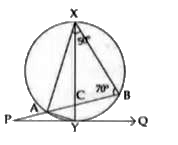In an arithmetic progression, if a = 2n +1, then the common difference of the given progression isSolution in Kannada
0
1
2
3
The correct Answer is:C
Step by step video, text & image solution for In an arithmetic progression, if a = 2n +1, then the common difference of the given progression is by Maths experts to help you in doubts & scoring excellent marks in Class 10 exams.
Updated on:21/07/2023Topper's Solved these Questions
- ARITHMETIC PROGRESSIONSBOOK - ZEN PUBLICATIONCHAPTER - ARITHMETIC PROGRESSIONSEXERCISE - ZEN ADDITIONAL QUESTIONS (VERY -SHORT-ANSWER [VSA] QUESTIONS)
11 Videos
- ARITHMETIC PROGRESSIONSBOOK - ZEN PUBLICATIONCHAPTER - ARITHMETIC PROGRESSIONSEXERCISE - ZEN ADDITIONAL QUESTIONS (SHORT-ANSWER [SA] TYPE 1 - QUESTIONS)
24 Videos
- ARITHMETIC PROGRESSIONSBOOK - ZEN PUBLICATIONCHAPTER - ARITHMETIC PROGRESSIONSEXERCISE - TEXTUAL EXERCISE (Exercise 1.4)
5 Videos
- AREA RELATED TO CIRCLES BOOK - ZEN PUBLICATIONCHAPTER - AREA RELATED TO CIRCLES EXERCISE - ADDITIONAL QUESTIONS (HIGHER ORDER THINKING SKILLS)
7 Videos
- CIRCLESBOOK - ZEN PUBLICATIONCHAPTER - CIRCLESEXERCISE - ZEN ADDITIONAL QUESTIONS ( HOT [HIGHER ORDER THINKING SKILLS] - QUESTIONS) (IIT AND IMO)
9 Videos
Similar Questions
Find 'd' in the following arithmetic progressions:
i] 2, 5, 8, 11, 14 .......
ii] -3, -1, 1, 3, .... ..
iii] 0, -8, -16, ......
iv] 12,32,52,….
View SolutionWrite the nth term of the AP:
a] 13,8,3,−2,…..
b] √2,3√2,5√2,…..
c] 121,117,113,…..
d] 34,54,74,….
e] −15,−10,−5,0,….....
View SolutionWhich term of the A.P.: 121,117,113,..... is its first negative term?
View SolutionFind the area of the shaded region portion in the given figure if E is the midpoint of AB,AGE and BEF are quadrants, and DOC is a semicircle.

View SolutionIn the adjoining figure, XY is a diameter of the circle and PQ is a tangent to the circle at Y. Given that ⌊AXB=50∘ and ⌊ABX=70∘, calculate ⌊BAY and ⌊APY.

View Solution(a) The nth term of a progression is (3n+5). Prove that this progression is an arithmetic progression. Also find its 6th term. (b) The nth term of a progression is (3−4n). Prove that this progression is an arithmetic progression. Also find its common difference. (c) The nth term of a progression is (n2−n+1). Prove that it is not an A.P.
View SolutionARITHMETIC PROGRESSION | PROPERTIES OF ARITHMETIC PROGRESSION
View SolutionIf the 10th,15th,25th term of an arithmetic progression are in geometric progression then the common ratio of geometric progression is (common difference of arithmetic progression ≠0) :
View SolutionFind the first term and common difference of the Arithmetic Progressions whose nth terms are given below
tn=−3+2n
View SolutionMake a positive Arithmetic Progression in which the common difference is a small positive quantity.
View SolutionIn an arithmetic progression, if a = 2n +1, then the common difference of the given progression is
View SolutionArithmetic Progression ( Difference Series)
View SolutionIn an arithmetic Progression Tn=3n−1, then common difference is:
View SolutionThe sum of n terms of an Arithmetic progression is Sn=2n2+6n. Find the first term and the common difference.
View SolutionWrite the common difference of the arithmetic progression whose nth term is
a] n2+5
b] 2n2−6
View SolutionFind out which of the following sequences are arithmetic progressions. For those which are arithmetic progressions, find out the common difference. :- 3,6,12,24,….
View Solution
